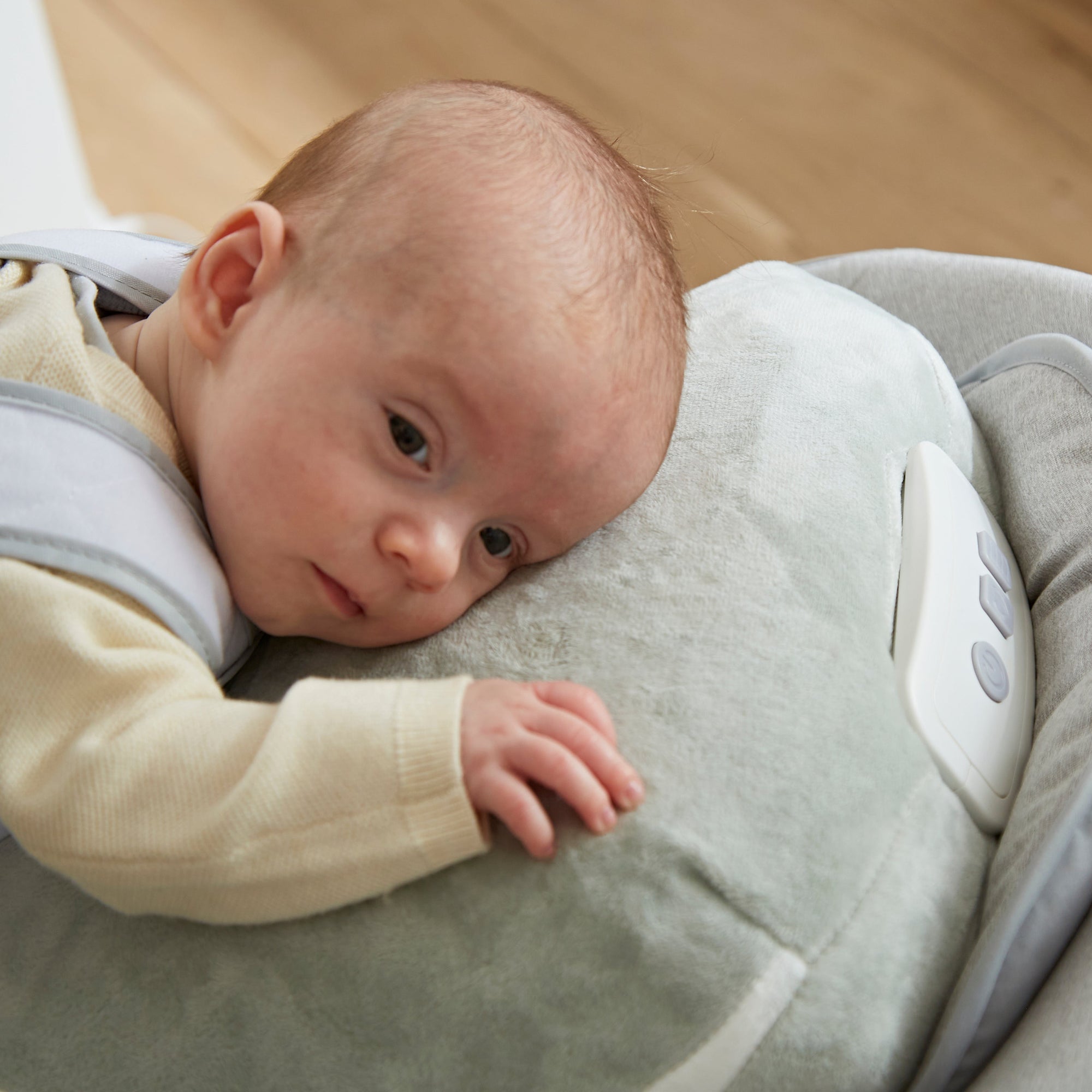The day has finally come, you’ve finally brought your newborn home from the hospital! For the first couple of weeks, you marvel at your baby who does little more than sleep, eat, pee and cry. Then one day, your little one erupts in prolonged, ear-shattering wails, complete with clenched fists, flailing legs and an unhappy red face.
No matter what you try, you can’t comfort your crying baby - and that's not all - your baby repeats these heartbreaking, stressful episodes every night at the same time for what seems like forever. Welcome to the world of colic!
Does your baby have some of the symptoms mentioned above? Read on for the signs of colic plus the causes and remedies to get you through.
What Is Colic?
When your baby seems perfectly healthy, has no obvious signs of distress and yet cries continually, they may be suffering from colic. Colic is prolonged bouts of excessive, frequent crying for no apparent reason, although some abdominal discomfort is thought to accompany it due to the way many babies draw their knees up when they cry which would indicate trapped wind. These episodes can be very distressing for both baby and parent, and can last for several weeks.
Thankfully, there are a couple of things you can do that might lessen the severity and duration of colic episodes and alleviate your own stress. Check out our seven tips to help you survive baby colic.
What causes colic?
Doctors aren’t sure what causes colic. Numerous reasons have been investigated by researchers. Some of which might be:
- Gas or indigestion-related pain or discomfort
- An underdeveloped digestive system
- Sensitivity to formula or breast milk
- Overstimulation
- Young baby migraine headache
- Emotional response to over-excitement, frustration, or terror
When are the typical signs of colic?
Normal crying typically starts when your little one is about 2 weeks old. When babies develop colic, it's usually between 2 and 4 weeks of age. About 1 in 5 babies end up suffering with colic. Other symptoms typically include:
- Babies with colic normally cry inconsolably for long periods of time.
- Some babies with colic experience bloated tummies, however not always.
- Babies with colic often pull their knees up to their chest and go red in the face
- Although there may be other causes, babies with colic often have a distinctive, high-pitched cry.
A loose "rule of threes" might be used to compare excessive crying to normal crying. In the absence of any other conditions that could explain the behaviour, your baby's crying is colicky if it lasts for three hours at a time, three or more days a week, for three or more weeks.

How Long Does Colic Typically Last?
Thankfully, there's a light at the end of the tunnel. Colic episodes can last for about 3 hours a day until your baby is about 6 weeks old; then, these episodes may get shorter and last about 1 or 2 hours a day until your little one is about 3 or 4 months old. In general, colicky crying tends to stop when your child is about 4 months old, but it can sometimes last until around 6 months of age. This feels like such a long and traumatic time. But in the meantime, comfort your baby as much as you can and ask for assistance whenever you need it.
Colic Myths:
Parents who struggle to cope with colic, often experience feelings such as guilt and worry. However, there are a lot of common myths around colic which aren’t true, such as:
- Babies with colic do not have a high temperature or lose weight.
- Babies with colic do not tend to suffer from explosive, watery diarrhoea.
- Babies with colic do not typically suffer from hiccups and/or vomiting.
- Babies with colic do not tend to develop worse colic symptoms after feeding.
Don’t worry - your baby's not in pain. According to recent research, colicky babies have no higher levels of the stress hormone cortisol - a physical indicator of pain - when they cry than babies who do not have colic.
How Can I Help My Colicky Baby?
Because there’s no apparent cause of colic, there’s no one treatment. Try these solutions one at a time. If one doesn’t work after a few days, try the next.
Colic will get better on its own. You may have to wait for the fussiness to improve when your baby is about four months old.
Some steps to soothe your baby include:
- Make sure they aren’t hungry.
- If you’re breastfeeding, ask your doctor whether the medications you take or the food you eat might be causing irritation or an allergic reaction in your baby.
- Rock them or massage their back.
- Use a pacifier.
- Swaddle your baby.
- Hold them with their bare skin against your own.
- Use white noise (like a fan, washing machine, or dishwasher) or a heartbeat recording.
- Take them for a car ride.
- Put your baby on a Comfort Cushion
Changing the position you hold your baby in can also help relieve colicky symptoms, and the babocush provides a safe and comfortable way to give your baby some tummy time. Tummy time is also essential to prevent flat head syndrome, which can happen when a baby lies on their back for prolonged periods of time. It’s also a great position for bringing up trapped wind and gas – often this is a common reason for the constant crying.

Parent Self-Care for Colic Stress
There’s a three month period that many parents come to dread — their baby’s period of colic. Colic in a baby can be difficult. Many parents experience stress, rage, or resentment when their baby is distressed. Since colicky crying has no underlying cause, it's best to take it easy on yourself since your parenting skills have nothing to do with it. Despite knowing this, colic still adds to your stress levels.You are not a horrible parent because of these emotions. Also, take comfort in the fact that it won’t last forever – most babies grow out of colic by 4 or 5 months.
It's okay to place your baby in a crib or playpen for around ten minutes while you leave the room to gather your thoughts. Ask friends, relatives, or babysitters to help if you need a break. Your baby will benefit as well if you reduce your stress levels. And be sure to take care of yourself. Despite the sometimes overwhelming responsibilities of caring for a young baby, eating right and staying active will help you cope with the stress of colic.

How can the babocush help colic?
The babocush helps prevent colic by holding your baby securely just like you do on their tummy, and has the extra comfort of gentle vibrations and a heartbeat sound for added relaxation. This gives you the chance to catch your breath as well as them, because colic is exhausting for both parent and baby. To shop, click here.
For more support on colic, read our blog posts:


